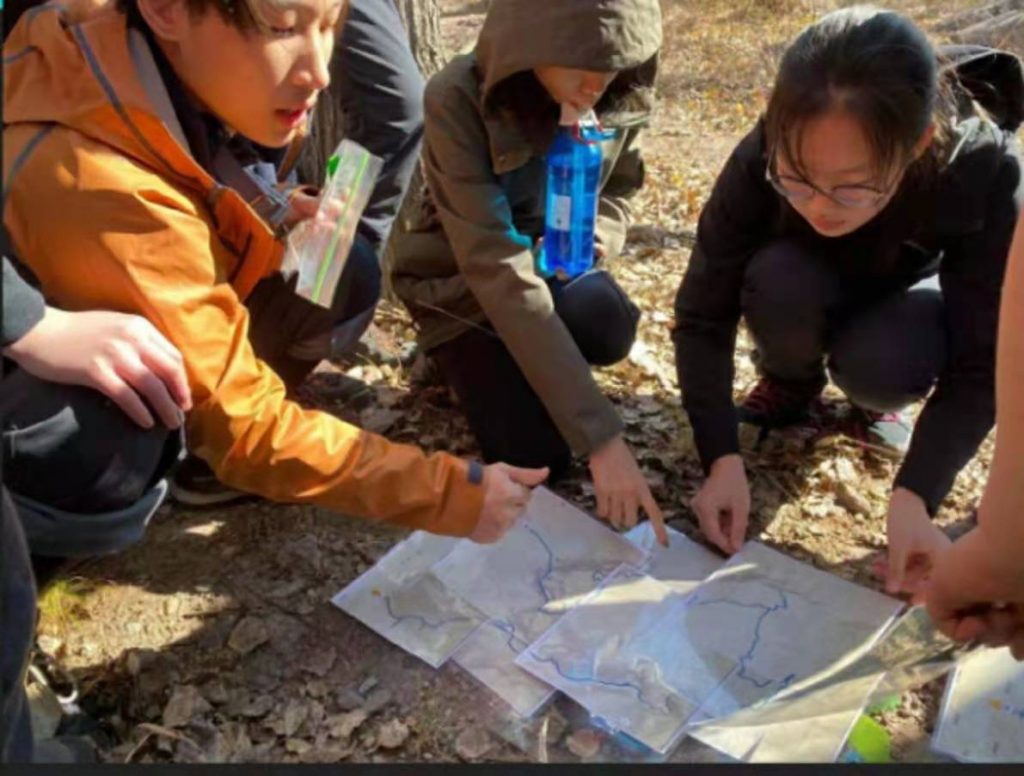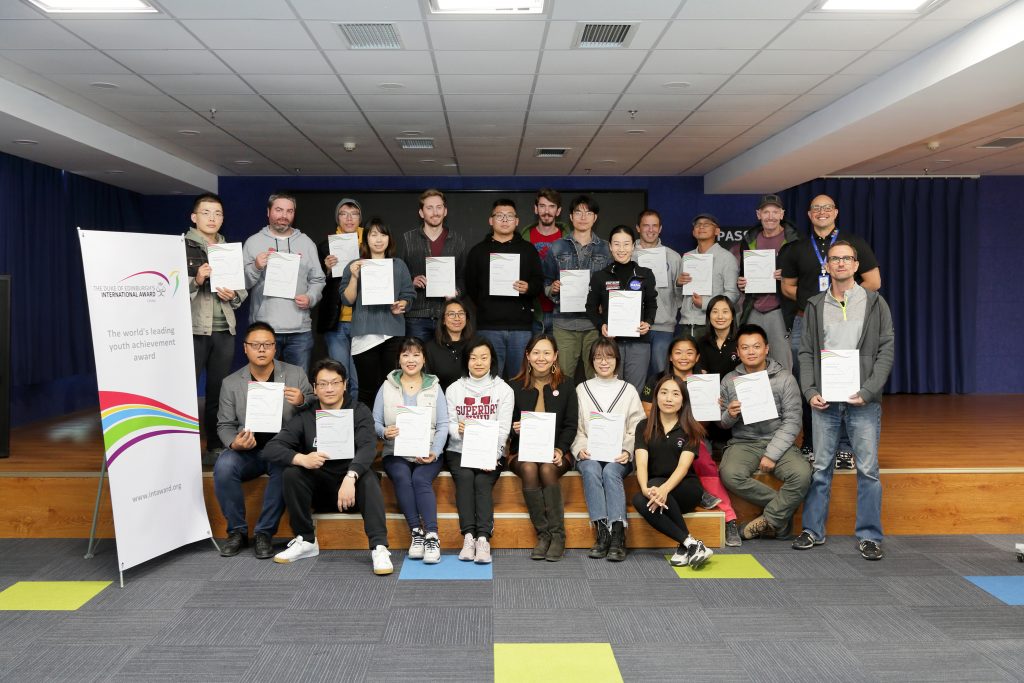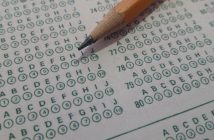Four years ago, Beijing International Bilingual Academy (BIBA)’s head of school Sharyn Baddeley found something was missing in the older students as they left for university. They needed a stronger sense of independence, more advanced social skills, and most importantly, more resilience when faced with obstacles.
BIBA offers many great extracurriculars, but she was still on the lookout for more to supplement their options. “We needed to find something different for the children to put onto their CVs,” Baddeley explained. “We had to help them be seen as doing more than other students do, particularly the Chinese students, and especially to get into universities in America. [Those universities] want to see something different from their applicants, to understand how these students can contribute to the community.”
That’s when she remembered her own experiences with the Duke of Edinburgh awards program and decided to introduce it to her school.

In 1956, the Duke of Edinburgh Awards were founded in the United Kingdom and are now in 144 nations, including China.
Mention the Duke of Edinburgh (or DofE for short) awards program to anyone who grew up in Europe or Australia and you’ll get knowing nods. It’s essentially an international program where students complete a series of self-improvement exercises (these can be tied to existing extracurriculars at their school or outside community service) and achieve bronze, silver, and gold-level awards.
One challenge in introducing the program to BIBA was that they were one of the only schools in China offering this particular program back then. So Baddeley hired a coordinator, who started to forge connections with other schools.
Another challenge was simply convincing parents it was needed. Most families didn’t know anything about the program and weren’t sure about one of the final steps, which is very physically and mentally rigorous: a rehearsed Adventure Journey the students do on their own, with a guide following to both evaluate and assist if they need intervention.
The DofE program doesn’t begin with a survival journey, however. The beginning or Bronze stage takes three to six months to complete, BIBA’s new Outdoor Education Coordinator, Peter Malan, told beijingkids. Students choose from 40 or more different clubs around the school, and the DofE website helps manage their time and accomplishments in the clubs, giving them tangible goals to strive for during the school year.
Malan found it very encouraging to see for himself how one student incorporates his new skills from last year into his school life, planning better for his classes and all his extracurriculars after moving through the DofE program. The student uses his planners and time more meticulously, a direct application of the skills learned after going on the Adventure Journey.
But what is the Adventure Journey?

Past BIBA Duke of Edinburgh participants on their Adventure Journey
After going on a practice session, students embark together on a two day and one night hike in the mountains without adult supervision. Guides do follow at a distance for emergencies and observation, but it is the students’ responsibility to get their entire teams from point A to point B. Guides have witnessed students forming leadership and teamwork skills while enhancing their organizational skills. They must pack their own gear and hike the entire way carrying it, which includes their food, water, clothing, and any tools or equipment they need.
Besides simply getting from point to point, there are certain other criteria for the Adventure Journey to be a success, like pitching your own tents, sometimes negotiating with residents of the area where you travel, and navigating difficult terrain together. The guides watching from the perimeters let students work out their own problems unless they get to the point when intervention is needed. That has happened during practice journeys with the BIBA crews, but not on the final one.

It’s up to the students to get through their journey together.
BIBA has offered other schools the opportunity to train their staff to be qualified to run the DofE program at their schools. Recently they hosted a Level 2 training session, which covered risk management, planning, and ensuring safety and health perimeters, as well as what logistics are needed to set up the program and support required for students. A number of schools participated in the recent workshop held in early November, some from Shanghai and some from the outskirts of Beijing. To become a registered Duke of Edinburgh International Program school, it is important to have qualified and knowledgeable leaders.
Once teachers have been trained, they can pick up and start the program in any school where they go. There is an online system that tracks every student’s progress from start to finish and offers educators all the organizational tools to succeed.

The 2020 Duke of Edinburgh Trainees at BIBA
How has it played out at BIBA, though? Have Baddeley and Malan seen a marked difference in their students since the program began? Absolutely, they say. Malan has witnessed how school subjects translate into practical skills, like how math comes into play when reading maps and using a compass. He integrates an understanding of the world around the teenagers in DofE preparation and instills the sense that they should always leave an area better than how they found it.
Baddeley sees the students feeling prouder of their accomplishments and acting more independently. They know their successes are up to them and they don’t wait to be pushed by somebody else. What the Adventure Journey offers teenagers is much different than just more extracurriculars on their CVs. It’s a true sense of their own self-worth and abilities beyond school life.
Parents must have noticed these positive changes as well; ever since returning to school in the fall, both parents and students have asked when they can start the program again! So off Malan and his team go to pack their gear and guide BIBA teenagers through another Adventure Journey.
KEEP READING: LEGO LEGO Everywhere: 2021 CNY Collector Sets Announced!
Photos: courtesy of BIBA and Duke of Edinburgh website




